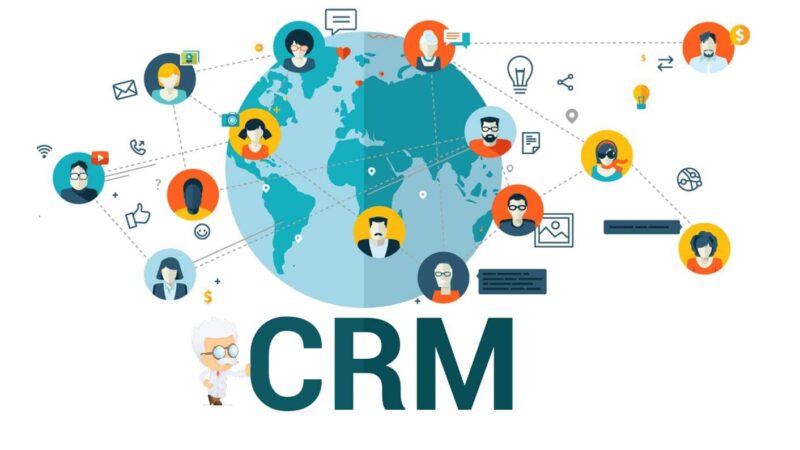Power BI vs. Zoho Analytics: Which Business Intelligence Tool is Right for Your Business?
If you’re looking to move beyond basic spreadsheets and unlock the true stories hidden in your data, you’ve probably heard of two major players: Microsoft Power BI and Zoho Analytics.
It’s a common crossroads for businesses: Do you go with the Microsoft powerhouse, or the deeply integrated Zoho solution? It’s not about which one is “better” in a vacuum, but which one is better for you.
At Arition Infotech, we help clients navigate this exact choice every day. So, let’s grab a coffee and break down this comparison into plain English, looking at cost, ease of use, integration, and who each tool is really built for.
First, A Quick Introduction
-
Microsoft Power BI: A standalone, powerful business analytics service from Microsoft. Its primary goal is to let you visualize any data from a wide array of sources (Excel, SQL databases, cloud services, etc.) and create interactive, shareable dashboards. It’s part of the broader Microsoft Power Platform.
-
Zoho Analytics: A self-service BI and analytics platform that is part of the extensive Zoho suite. While it can also connect to many data sources, its superpower is its seamless, native integration with other Zoho applications like Zoho CRM, Books, Desk, and Campaigns.
Now, let’s get into the nitty-gritty.
Round 1: Pricing & Affordability
This is often the deciding factor, and the difference is significant.
-
Zoho Analytics:
-
The Winner for SMBs and Zoho Users. Zoho Analytics has a very attractive and transparent pricing model. It starts with a free plan (with limitations) and paid plans are typically priced per user, per month, often starting at a very accessible point.
-
The Zoho One Advantage: If you’re subscribed to Zoho One (the all-in-one suite), Zoho Analytics is often included, providing incredible value and making it almost a “no-brainer” for existing Zoho customers.
-
-
Microsoft Power BI:
-
A Tiered Model. Power BI has a few tiers:
-
Power BI Desktop: This is free and allows you to create robust reports on your own computer. However, to share and publish those reports securely, you need a paid license.
-
Power BI Pro: Priced per user, per month, this is needed for sharing content and collaborating with others. This can become expensive as your team grows.
-
Power BI Premium: A higher-cost capacity-based model for larger enterprises that need more performance and bigger data volumes.
-
-
Verdict: Zoho Analytics generally has a lower barrier to entry and total cost of ownership, especially for small to medium-sized businesses already in the Zoho ecosystem.
Round 2: Ease of Use & Learning Curve
How quickly can your team get up and running?
-
Zoho Analytics:
-
Intuitive and User-Friendly. Zoho is known for creating clean, intuitive interfaces. Its drag-and-drop designer, pre-built templates, and AI-powered assistant (Zia) make it relatively easy for non-technical users to start building reports and dashboards. The learning curve is gentler.
-
-
Microsoft Power BI:
-
Powerful but Steeper Learning Curve. If your team is already proficient in Excel and familiar with Microsoft’s ecosystem (like DAX formulas), there will be some familiarity. However, to unlock its full potential, Power BI has a steeper learning curve. It’s a professional-grade tool that often requires more training or a dedicated analyst to use effectively.
-
Verdict: Zoho Analytics wins on ease of use and time-to-value. For teams that want to start visualizing data quickly without extensive training, Zoho is the more approachable choice.
Round 3: Integration & Data Connectivity
This is where the core philosophies of these tools diverge dramatically.
-
Zoho Analytics:
-
The King of Native Zoho Integration. This is its killer feature. If you use Zoho CRM, your sales data is already there. Using Zoho Books? Your financial reports are a click away. The integration is seamless, automatic, and requires zero setup for other Zoho apps. It also connects to many third-party sources like Google Drive, QuickBooks, and Salesforce.
-
-
Microsoft Power BI:
-
The Universal Connector. Power BI’s greatest strength is its vast library of data connectors. It can pull data from hundreds of sources—from Azure SQL databases and SharePoint lists to Google Analytics and Salesforce. If your data lives across the entire Microsoft stack (Dynamics 365, Azure, Excel) and other platforms, Power BI is incredibly powerful.
-
Verdict: It’s a tie, but for different reasons. Choose Zoho Analytics for deep, native integration within the Zoho ecosystem. Choose Power BI for broad, universal connectivity across a diverse tech stack.
Round 4: Features & Advanced Capabilities
Both tools are packed with features, but they cater to different levels of complexity.
-
Microsoft Power BI:
-
The Enterprise Powerhouse. Power BI is often considered the industry leader for advanced analytics. It handles extremely large datasets with high performance. Its DAX (Data Analysis Expressions) language offers immense flexibility for creating complex calculated columns and measures. It’s built to scale for large enterprise needs.
-
-
Zoho Analytics:
-
Surprisingly Powerful and Agile. Don’t underestimate Zoho! It offers a wide range of visualization options, a powerful scripting language (Deluge), and strong collaboration features like discussion threads and alerts. Its AI assistant, Zia, can automatically generate insights and create KPI widgets, which is a great bonus.
-
Verdict: Power BI has a slight edge in raw, advanced analytical power for large enterprises.However, for most small to mid-sized businesses, Zoho Analytics is more than capable and offers plenty of sophisticated features.
The Final Showdown: Which One Should You Choose?
Here’s our straightforward advice from the trenches at Arition Infotech.
Choose Zoho Analytics if…
-
You are already using other Zoho applications (CRM, Books, Desk, etc.).
-
You are a small or medium-sized business with a limited budget.
-
Your team needs a tool that is easy to learn and use without deep technical expertise.
-
Your primary goal is to get quick, integrated insights from your core business apps.
Choose Microsoft Power BI if…
-
Your organization is heavily invested in the Microsoft ecosystem (Azure, Dynamics 365, Office 365).
-
You are a large enterprise dealing with massive, complex datasets from many different sources.
-
You have data analysts on staff who can leverage advanced features like DAX.
-
Your needs are primarily centered around building complex, enterprise-level data models and reports.
The Arition Infotech Perspective: It’s About Your Ecosystem
Our core philosophy is that your tools should work together, not create more silos. The best choice often comes down to your existing software environment.
-
A Zoho Shop? If Zoho CRM is the heart of your operations, then Zoho Analytics is the natural brain that brings it all together. The synergy is unbeatable.
-
A Microsoft Shop? If your company runs on Microsoft technologies, Power BI will feel like a native extension of your workflow and will likely integrate more smoothly with your IT infrastructure.
Still Not Sure? Let Us Help You Decide.
The right BI tool can transform your business from reactive to proactive. The wrong one can be an expensive and underutilized asset.
At Arition Infotech, we don’t just implement software; we provide strategic advice. We can analyze your current tech stack, your data sources, and your business goals to recommend the perfect BI solution.
Ready to make sense of your data? Contact Arition Infotech for a free consultation. Let’s build your data-driven future together.



